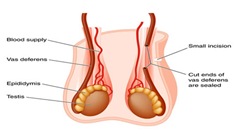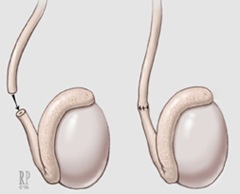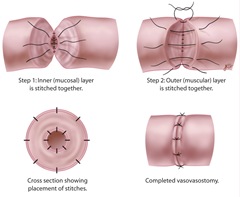Age can have a significant impact on vasectomy reversal success, both for the patient undergoing the surgery and their partner. While vasectomy reversal is a highly effective procedure for restoring fertility, understanding how age affects outcomes can help set realistic expectations and guide decision-making for couples hoping to conceive.

Understanding the Basics of Vasectomy Reversal
Vasectomy reversal is a microsurgical procedure that reconnects the vas deferens—the tube that transports sperm from the testicles to the urethra. When successful, it allows sperm to once again be present in the ejaculate, making natural conception possible. While many factors influence success, including the time elapsed since the vasectomy and the presence of sperm in the vasal fluid, age is one of the most important variables to consider.
Male Age and Vasectomy Reversal Success Rates
While men can produce sperm well into later life, age-related changes in reproductive function can affect vasectomy reversal outcomes in several ways:
- Sperm Quality: Sperm motility (movement) and morphology (shape) may decline with age, which can reduce the likelihood of natural conception even after a successful reversal.
- Healing and Recovery: Older patients may take longer to recover from surgery or may be more prone to complications, although this varies greatly by individual health status.
- Time Since Vasectomy: Older men are more likely to have had their vasectomy many years earlier, which can increase the risk of blockages or scarring that complicates reversal.
Studies have shown that men under 40 have slightly higher success rates in terms of return of sperm and achieving pregnancy after reversal compared to those over 40. However, many men over 40 still experience successful outcomes, especially when operated on by an experienced microsurgeon.
Partner’s Age and Female Fertility
The female partner’s age is often a more significant predictor of pregnancy success following vasectomy reversal than the male’s age. Fertility declines more sharply in women over 35 due to factors such as reduced ovarian reserve and changes in egg quality.
- Female Age Under 35: Couples in this group have the highest likelihood of conception following vasectomy reversal.
- Female Age 35–40: Pregnancy is still highly possible, but fertility evaluations may be recommended before committing to reversal.
- Female Age Over 40: In vitro fertilization (IVF) or other assisted reproductive technologies (ART) may be more effective, either with or without sperm retrieval.
Evaluating Other Contributing Factors
While age is important, it is only one part of the fertility equation. Additional considerations include:
- Surgeon’s Experience: Choosing a highly experienced microsurgeon significantly improves the chances of a successful outcome regardless of age.
- General Health: Maintaining a healthy weight, avoiding smoking, and managing chronic conditions can enhance both surgical recovery and fertility.
- Time Since Vasectomy: Success rates tend to decline as more time passes since the original vasectomy—particularly after 10–15 years.
When Is IVF a Better Option?
In some cases, especially when the female partner is older or when there are additional fertility concerns, IVF may be a better or more time-efficient option. IVF with sperm retrieval can bypass the need for reversal altogether, but it is more costly and may require multiple cycles. Discussing both options with a fertility specialist can help determine the best path forward.
How Age Impacts Vasectomy Reversal Success Conclusion: Age Is One Factor, Not the Only One
While age does impact vasectomy reversal success—particularly in terms of sperm quality and time since the original vasectomy—it doesn’t rule out the possibility of a successful outcome. The best results come from a personalized approach that takes into account both partners’ health, fertility goals, and timing.
Schedule a Consultation
To learn more about how age may impact your vasectomy reversal outcome and explore your fertility options, contact:
Yaniv Larish, MD
4 East 76th Street
New York, NY 10021
Phone: (646) 862-5500
Dr. Larish offers personalized care and advanced microsurgical techniques to help patients achieve their reproductive goals at every stage of life.



